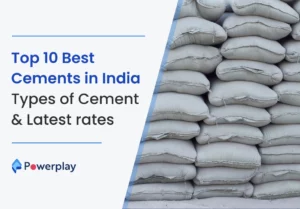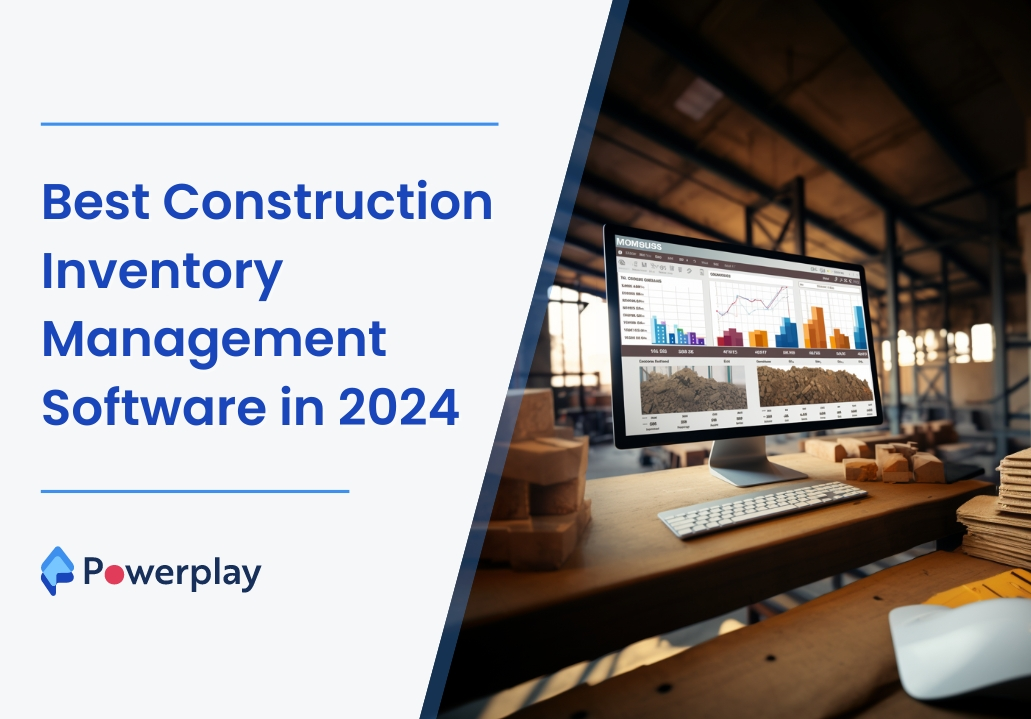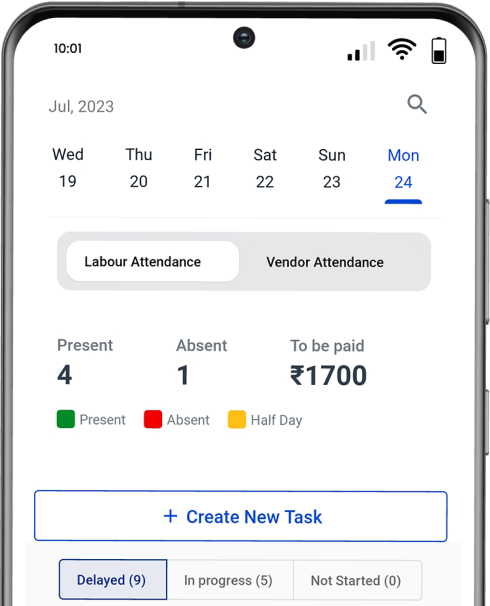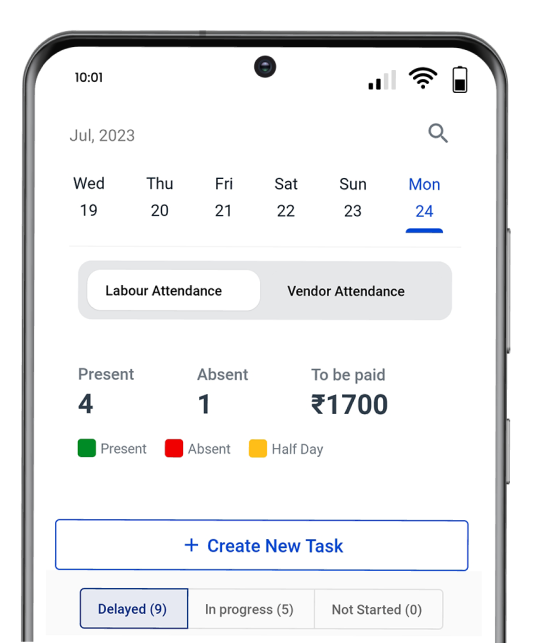Bill of Quantities (BOQs) and its Advantages
-
Kumar Abhishek Anand
- October 23, 2023
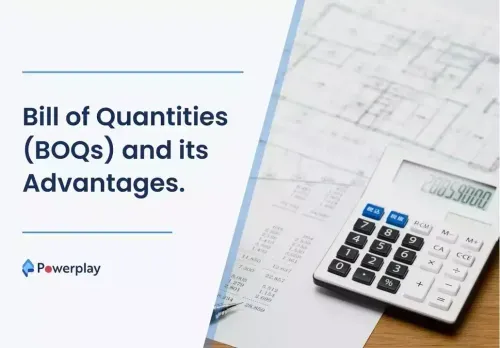
Table of Contents
ToggleBill of Quantities(BOQs)
A BOQ can be thought of as an item list for a construction project, with all the quantities inserted by a client whose rates have to be filled up by the contractor or bidder, measured as rates or price per item. These items can be measured in number, length, volume, area, weight, time, etc. Bill of Quantities or BOQ or BQ is a key piece of document that is used in tendering in the construction industry to list all components needed in a construction project such as materials, laborers, parts, etc. A BOQ is typically designed by a cost consultant usually, a quantity surveyor(QS) who excels in abstracting project-specific items from drawings and specifications in the tender documents.
The list of items included in a BOQ is taken from a standard method of measurement, either referenced from a previous project or with the designer’s experience. Each item’s total quantity is estimated from the tender’s drawings usually prepared by the design firm. Most of the time, a BOQ contains a variety of materials and labor-related quantities and resources that help contractors in estimating the cost of a project in order to prepare an appropriate bid for the project. BOQ helps tenderers to calculate construction costs for their tender and the tendering contractors to price the same quantities. Since there is already a standard measurement basis set for the components by the tenderers, the contractors do not need to estimate quantities from the drawings and specify themselves on a new measurement basis, thus providing a fair and accurate system for tendering. The contractor’s crew has a tendering team that includes an estimator, who prices up the bill by inserting appropriate rates or prices against each of the items. The number of items and their quantities depend upon the magnitude of the project.
Earlier BOQs were prepared on sheets of paper, which has now been almost abolished since all government and private tenders now provide these items listed in excel sheets, and which have to be submitted in the same format and not in any other file formats such as pdf or word file. BOQs can be prepared for construction, repair and demolition works and is widely advantageous because of their consistency and straightforward process for inspecting and collating tenders.
Collating tenders becomes much easier when BOQs are used because BOQs contain the same items and only the tenderer’s price differs, which can be compared with requisite standard measurement. As BOQs contain the prescribed items, it is possible to collate overall cost and individual quantities directly with the tenderer’s offers, providing a precise assessment of which parts of the BOQ can offer good value, which ultimately results in better negotiations. An effective BOQ can be prepared when the designing professional has access to every detail of the project along with standard industry prices for all items.
BOQ Templates
All items included in a BOQ cannot be measured using a single template or standard, but different sets of items or individual components can be directly or indirectly configured to be measured with a specific template. For example, the number of bricks used in a construction project can be estimated as pieces per square unit or volume unit, whereas the amount of cement has to be measured as kilograms per square or volume unit. Majorly there are only 6 types of templates that can be modified to prepare BOQ for almost every type of requirement.
The 6 types of BOQ templates are:
- Item Wise BOQ
- Item Rate BOQ
- Percentage BOQ
- Item WIse Open for H1
- Multicurrency BOQ and
- Form-Based BOQ
The Format of BOQ is given below in the standard sequence:
- Serial Number
- Item Number
- Item Description
- Unit
- Quantity
- Rate per Unit
- Total Amount
- Remarks
A BOQ has to be prepared meticulously by assessing past experiences and present industry conditions. The steps involved in preparing a BOQ are as follows-
- The actual site or plan is measured carefully and several quantities like area, volume, etc, are calculated.
- Each quantity is taken off or estimated in the form of a summary
- The standard guidelines are then referred to, to smoothly calculate the total cost as per the provisions provided in it.
- Several other quantities that may come into the picture due to unforeseen circumstances are also estimated along with the laborers.
- Thus a final amount is computed and handed over to the contractor to complete the project as per the tender.
– Conclusively the preparation of a BOQ can also be summed up in three simple steps namely, taking off quantities, adding descriptions to all quantities, and working up or recording every measurement required into a sheet known as a TDS sheet.
Bill of Quantities in the current construction industry are being used as two types, that are:
1. Firm Bill of Quantities- To compute a lump-sum cost of a completely designed construction project, a firm bill of quantities is used. The work that has to be done is calculated and explained accurately, i.e., the cost of work can be calculated precisely, due to which the tender prices should be authentic and a proper financial restrain should be possible. The firm bill of quantities forms a good basis for evaluating the cost of the changes that may be necessary to the works defined in the tender documents.
2. Approximate Bill of Quantities- As the name suggests, an approximate bill of quantities or provisional bill of quantities is prepared when there is insufficient information to prepare it at the tender stage or when there is no need for a firm bill of quantities. It has flexible provisions for re-measurement of quantities in case of any changes in the items description or on completion of the project. In an approximate bill of quantities, the amount of work that has to be done is complete whereas the number of items being used is approximate. Thus a quantified format of rates of all items are provided in the tenders and not a lump-sum amount. This BOQ may seem cost and time-efficient on the surface but there are additional variations along with more than one re-measurement process, that can increase the overall administrative costs and this may be one of the major drawbacks related to approximate bill of quantities.
Advantages of Bill of Quantities(BOQs)
- A better and more comprehensive description of the works involved in the project with proper quantification of the items is provided by BOQs, which helps the contractor in getting a fair idea about the project.
- BOQs help in evaluating and comparing the tenders submitted by eligible contractors, in a much easier manner.
- BOQs assist in anticipating future problems and finding solutions for them, that may occur during the project duration.
- BOQ eliminates any room for guesswork because every component needed for the project work is defined with abundant clarity.
- BOQs provide better project planning opportunities as a major part of the work is already accomplished when the items of work along with their quantities are listed in a BOQ.
- As the list of items and their quantities have already been prepared, there is more than enough time left to select the appropriate supplier and negotiate with them, ultimately reducing the cost of the project.
- BOQs help in completing the project in the given timeframe, as the quantities of materials are already known that have to be procured within the stipulated time.
- Since the project is being operated smoothly due to the use of BOQs, the overall project becomes time and cost-efficient.
- BOQs are often termed as one of the best project management tools, that offers assistance in managing the project as all item details, supplies, timeframes, etc, are known from BOQs
- There are almost little or no chances of corrupt practices because BOQs make all resource-related processes transparent.
- BOQ can also be used as a tracking tool during the construction process and at the end of the construction project, actual work quantities can be filled up against the BOQ items or works, check discrepancies with the original quantities. This ultimately helps in computing additional payment to the contractor if the actual quantities are more than the prescribed quantities and also the contractor may owe money to the client in case the actual quantities used were less than the BOQ quantities.
The preparation of BOQs and the regular updating of the quantities being used can help in managing the construction project more efficiently. Construction project management can be easily performed nowadays using project management tools that have been specifically devised to make the construction process more smooth and efficient. Powerplay application proves to be an allrounder in construction project management that can be easily handled by all employees, clients, and contractors specific to a construction project. There are many applications out there for this purpose globally, but Powerplay is India’s first construction project management application that can be used to manage almost all types of construction projects going on in the country.
Share
Kumar is a digital content professional with more than 2 years of experience in Blog writing, copywriting and scripting. His passion lies in the art of creating convincing content that plays a major role in converting leads for SAAS businesses.

